VOTER GUIDE
On Tuesday, June 30, Faith in Public Life and Interfaith Power & Light released a voter reflection guide endorsed by prominent national faith groups and religious leaders. The guide, Democracy, Values & the 2020 Election, addresses urgent issues in the election, including voting rights, climate change, systemic racism in the criminal justice system, healthcare and immigration. The guide, which will be distributed across the country for discussion in diverse faith communities, includes topics for reflection and sample questions to ask candidates Download Full Guide Here
Download Spanish-language version of the guide, Democracia, Valores y las Elecciones de 2020
Issues and Questions
Democracy and Voting Rights (Page 1)
This election is more than a choice between parties and ideologies. An even more fundamental question is at stake: Can we preserve democracy in the face of serious threats to fair elections and fundamental rights?
Questions for Reflection and Candidates
- How do you see democratic values at risk today?
- How do systemic barriers to voting undermine our most sacred democratic values?
- How can your faith community better advocate for stronger voter protections at the state and local level?
- As a candidate, what are your specific plans for protecting and strengthening voting rights?
Protecting God’s Creation Climate Justice for our Children and World (Page 2)
As people of faith, we believe that responding to the urgent threat of climate change is essential to caring for God’s creation and loving our neighbors. Human activity, primarily the burning of fossil fuels for energy, has thrown
nature out of balance, polluted the air, driven thousands of species of God’s creatures to extinction, intensified catastrophic events such as wildfires and hurricanes, and threatened the lives and livelihoods of our most vulnerable brothers, sisters and neighbors around the world. Scientists tell us we have less than a decade to avoid even more catastrophic consequences.
The United States has a unique responsibility to show moral and political leadership:
- Transitioning our economy away from polluting fossil fuels toward 100% clean energy.
- Honoring the emissions-reduction commitments our nation made at the UN Conference on Climate Change in Paris in 2015, and taking additional actions needed to avert catastrophic global warming.
- Assisting developing nations— who are least responsible for climate change but most impacted by it — in coping with threats such as increased droughts, disease, and sea-level rise by sharing technology and financial support.
Questions for Reflection and Candidates
- What does your faith teach about our responsibilities for the Earth and to others? How are they interdependent?
- Has your faith community made an effort to cut emissions, save energy, or practice environmental stewardship?
- As a candidate, what specific policies do you support to protect God’s Creation and secure a safe climate for our children and future generations?
Loving Our Immigrant Neighbors (Page 4)
Scripture repeatedly makes clear that immigrants must be treated with dignity. Policies that rip children from their parents’ arms, lock people away in inhumane conditions, and ban desperate families from entering the country
should keep us awake at night. As people of faith, we believe that the way we treat our immigrant neighbors is a sign of how we treat God.
Questions for Reflection and Candidates
- How can we replace immoral immigration policies that tear families apart and cause trauma with an immigration system that values families and affirms the dignity of allv people?
- What can we do to heal the wounds inflicted on immigrant communities by political rhetoric that portrays them as a dangerous “other?”
- If there are immigrants in our community who are feeling isolated and under threat, how can we show support and build connections?
- As a candidate, what will you do to defend the dignity of all immigrants, and how will you further policies that keep families together?
The Last Shall Be First An Economy of Inclusion (Page 5)
Our economic systems should work for all Americans, not only the wealthiest few. This is a matter of justice and
human dignity. All religious traditions recognize that charity is essential to care for the most vulnerable, but helping our neighbors in poverty also compels us to address its root causes. “Charity is no substitute for justice withheld,” St. Augustine observed centuries ago.
Questions for Reflection and Candidates
- What can we do to ensure that all Americans are able to provide for their families and live with security and dignity?
- How do we create a just tax system that is fair to all Americans, including working families who are trapped in poverty?
- Why does the United States lag behind most developed countries when it comes to providing paid sick leave and paid family leave?
- As a candidate, what are your specific plans to ensure workers have living wages and economic security while the coronavirus pandemic continues, as well as for the long term?
More Health Policies in a Time of a Pandemic (Page 7)
Despite our nation’s stated values of life and equality, the United States is the only industrialized country in the world that does not guarantee its residents universal access to health care. This is a failure of political and moral imagination – especially in a time of pandemic.
Questions for Reflection and Candidates
- How can people of faith be most effective in using our stories, congregations and power to advocate for health care reform?
- What do you struggle with the most when it comes to our healthcare system?
- How has the COVID-19 crisis impacted your community? What policy solutions can keep us all safe and remedy racial and economic inequalities in your community?
- As a candidate, what are your specific plans for making sure that quality,
affordable health care is available for all?
Restorative Racial Justice (Page 9)
Justice and redemption are at the very heart of faith. Restorative justice begins with listening to and empowering communities that have been exploited, excluded and denied equal representation and freedom. The evil ideology of
white supremacy shaped our nation from its founding and continues to impact policies and communities today, especially in the criminal justice system. The killings of Ahmaud Arbery, Breonna Taylor, George Floyd and so many other Black people, Indigenous people, and other people of color, has provoked a growing, multi-racial moral movement for accountability and systemic reforms for racial justice.
Questions for Reflection and Candidates
- How can we dismantle the evil ideology of white supremacy in our culture and political systems?
- What can be done to end racial profiling and police violence against people of color?
- What steps can be taken to ensure formerly incarcerated people have voting rights and fair access to employment?
- As a candidate, what will you do to ensure racial justice is prioritized in the criminal justice system?
- How do we build safe communities for everyone, particularly people of color?
Made in the Image of God: Respecting the Dignity of LGBTQ People (Page 11)
All people have inherent dignity because everyone is created in the image of God. Our gay, lesbian, bisexual and transgender family members, neighbors and co-workers deserve equal rights, and to live without fear or discrimination.
Questions for Reflection and Candidates
- How can your faith community more fully support the equal dignity of LGBTQ people in your state and local area?
- What are the greatest threats to LGBTQ people in your community and the nation?
- As a candidate, what are your specific plans to ensure that LGBTQ people have equal rights and are treated with dignity
The Global Common Good: We’re All in This Together (Page 12)
What does it mean to love our neighbors as ourselves in a globalized world? The health and future of our country and
communities are interconnected to the health and security of other nations. Our fates are bound up in what Rev. Martin Luther King, Jr., called “an inescapable network of mutuality.”
Questions for Reflection and Candidates
- What policies do you think are most important for creating security for your family and community?
- What role should the United States play in the world to help build global peace and security?
- How can your faith community advocate for policies to create a more peaceful world?
- As a candidate, what programs and policies would you prioritize to help build secure communities and a peaceful world?


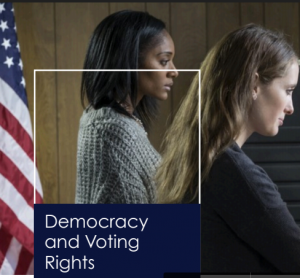
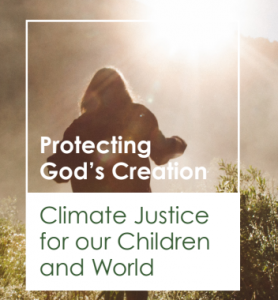
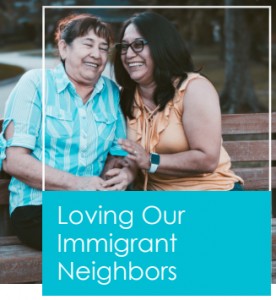
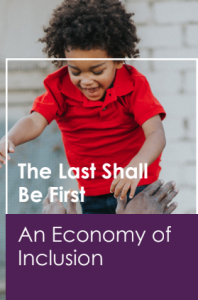
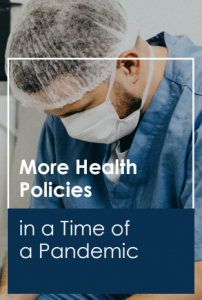
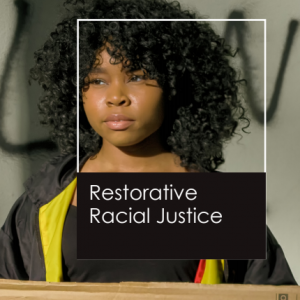
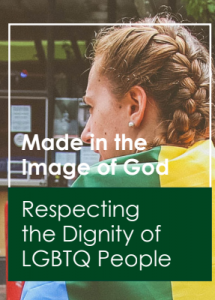
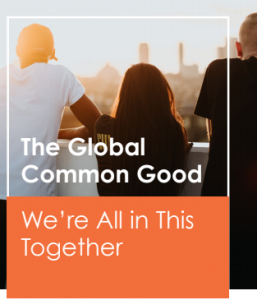
Critical Public Hearing at Valencia County Commission on July 14
/in Actions, Campaigns, Faithful Citizenship, Featured Articles, NEWS /by adminIn May, the Valencia County Commission approved an ordinance for a new Natural Resource Overlay Zone (NROZ). The NROZ ordinance sidesteps the Mineral Resource District (MRD) code that has been in effect since 2004.
The NROZ ordinance:
Oil and Gas Drilling:
Why put a new ordinance in place that makes it extremely easy for an Oil & Gas company to start drilling in Valencia County?
Why put a new ordinance in place that provides far fewer protections than the existing ordinances provide for our community?
Why sacrifice our community for someone else’s profit?
Please attend the Public Hearing at the Los Lunas Transportation Center (101 Courthouse Rd SE, Los Lunas).
Hearing begins at 5 pm, please show up by 4:30 pm to sign up for public comment.
Please don’t hesitate to contact us with questions or concerns.
We hope to see you there,
Valencia Water Watchers
Recent News Articles and Op Eds:
Ordinance Could Bring Oil and Gas to Valencia – May 12, 2022
Valencia County to Reconsider Opening Door to and Gas Development – May 31, 2022
New Mexico Oilman hopes to drill in Valencia County – June 1, 2022
Capital and Main: Valencia County to Ease Oil & Gas Drilling Rules – May 24, 2022
Harvey Yates’ Misleading Op-Ed – June 24, 2022
Oil and Gas Drilling: At What Cost? (VWW Op-Ed) – June 30, 2022
Add your name to the IPL petition to Sen. Schumer and the full Senate
/in Actions, Campaigns, Faithful Citizenship, Featured Articles, NEWS /by adminThe national IPL is circulating this “Our Climate Can’t Wait Petition” to Senator Schumer and the full Senate with the Climate Action Campaign. The petition will be delivered on Monday, July 18th.
The Permian Basin – An Oil and Gas Sacrifice Zone that Entangles Us All
/in Faithful Citizenship, Featured Articles, NEWS, Permian Basin /by adminBy Ann McCartney and Clara Sims
As jarring as these visuals were to take in amidst the 100 plus degree heat, it was the stories we heard that left the most permanent marks on our hearts.
Health risks for frontline residents
Women with friends and husbands, fathers and children affected by the oil and gas economy of the region told us stories of so much illness: thyroid disorder, asthma, allergies, and cancer. They told of us people developing rare and terminal cancers at the age 14 and 35 and 50 – stories of their loved ones asking each other, how can this be? How can so many people be getting not just sick, but this sick? This can’t be normal.
Local residents talk about contamination concerns
One home pointed out to us housed an oil worker who has already lost two wives to cancer living in his home next to a working pump jack. And even when terminal sickness is not present, bad smells and contaminated water in Hobbs turns people’s eyes red when showering and causes head hair to fall out. We were told that it is essential, if you can afford it, to put a shower filter on the shower, so one is not bathed in seemingly toxic water while showering.
The women we spoke with on our journey repeated over and over again that what is needed in the Permian region are different economic opportunities. Opportunities that do not pollute the air they breathe, the water they drink. Opportunities which do not overwork and jeopardize workers safety, day in and day out.
Oil and gas is an industry deeply embedded in our state and it has been the lifeway of many for a long time. We must understand and respect these ties and histories if we are to undertake the long, hard, deliberate, and collaborative work needed to bring a vision of economic vitality and health and sustainability to our siblings in SE New Mexico.
Kayley Shoup, retreat participant Stephen Picha
We were so grateful to see so much, hear so many stories and to pray and share rituals together with water and shared concerns. As our field guides and sojourners, we had the opportunity to journey with and discuss these issues with folks from Citizens Caring for the Future (CCFF), including community organizer, Kayley Shoup and one of the local leaders and Mennonite Pastor, Nick King. Kaley and Nick are among those working tirelessly and diligently in partnership with IPL to address concerns around health, human dignity, methane rules, water concerns, and oversight to safeguard the common good and community members.
We were inspired by the tenacity of their heart-driven advocacy. With the stronghold the industry has on the communities we toured, it is herculean task to raise the ethical and moral concerns to change minds and practices. CCFF is an important witness meeting with local citizens, educating and engaging people in actions. During our trip they were sharing the value of the Oil and Gas Threat Map.
Community members are very interested in this tool that shows threat zones that include homes, schools, hospitals, businesses, etc. which lie within a half mile of an oil facility, whether a pump jack, storage tank, or compressor station. Yes, a half mile – the homes we saw in Hobbs were less than 100 yards from a working pump jack – in the very heart of the threat zone. In addition to information, CCFF works to address health concerns and hopes to offer adequate air purifiers to those most vulnerable.
This summer is also an important time to contact the EPA to strengthen the federal methane rules, including addressing often exempted low producing wells which produce 6% of oil and gas and produce 50% of the methane (a greenhouse gas which is heavier and 80 times more potent than CO2 in warming the planet). Advocating for strengthened federal rules is one of the most impactful things we can do as allies to those in the Permian as well as working for just transition to new and viable economic development. Public comments will be taken on supplemental EPA methane rules in the fall and all voices are welcome.
All our efforts at advocacy, solidarity, and awareness (like simply having a conversation with someone!) make a difference. We are all one and we are intimately entangled in the Permian Basin in our lives and as we face climate disruption. The Permian support our, our, dependence on oil and gas for everything from our cars, our stoves to heating our homes.
Those living in other regions of New Mexico have a particular responsibility as neighbors with the vulnerable communities in SE and NW New Mexico. We must keep talking about the suffering oil and gas creates, the need to strengthen methane rules, as well as the monitoring and enforcement of those rules.
Our minds tell us this excess and overproduction of oil and gas is not an acceptable and safe way to live and to treat Holy Mother Earth and her living biosphere, that includes our neighbors.
Our hearts tell us that no one – no single person – should be sacrificed for the profits of an extractive industry.
Our spirits call us to raise our voices in witness and solidarity to the cries Earth and the cries of her peoples.
Let us continue to work for the common good of our beautiful, abundant state and all the peoples who call this region home. You can get more engaged by contacting IPL.
(Ann McCartney is co-chair of the NMEPR-IPL board. Her daughter, Clara Sims, is a student at the Yale Divinity School and recently a youth organizer for NMEPR-IPL)